Strong engagement for Sweden’s mobilised efforts to boost global competitiveness and foreign trade
Published
On 9 April, Minister for Energy, Business and Industry and Deputy Prime Minister Ebba Busch and Minister for International Development Cooperation and Foreign Trade Johan Forssell gathered leading actors in Team Sweden for a high-level meeting. The aim was to jointly foster better conditions for improved global competitiveness and foreign trade, and bolster Sweden’s position internationally. The Government organised the meeting to discuss the work already in progress and the joint path forward.
The purpose was to gather actors from the business sector, government agencies and academia to join together in implementing Sweden’s strategy for foreign trade, investment and global competitiveness, and promote Sweden’s image abroad. Around 150 participants posed questions and offered suggestions on the Government’s ongoing efforts.
“A strong and competitive Sweden strengthens our welfare and security. That’s why we’ve listened to your suggestions on what Sweden needs in order to give Swedish companies the best possible conditions to grow, develop and secure leading positions in tomorrow’s global markets. We’re now jointly intensifying efforts to succeed in our goals,” says Ms Busch.
Work to implement the strategy fully under way
Implementation of the strategy is already in progress. This has included setting up Team Sweden Ukraine, with a trade commissioner and staff on the ground in Kyiv. Moreover, a special promotional initiative on emerging economies in Asia has been launched, and the development assistance reform agenda has been adopted. Additional measures include a government agency mandate to facilitate talent attraction and efforts to cut red tape for companies. A number of implementation directives have also been finalised in the budgetary guidelines for Business Sweden. This includes a stronger Business Sweden presence in low- and middle-income countries.
“The Government has mobilised around an ambitious strategy. Strengthening synergies between development cooperation, promotion and trade policy is a point of emphasis. Sweden must mobilise concerted efforts to succeed. Together with the business sector, government agencies, regions and higher education institutions, we will harness the opportunities arising with the green and digital transition currently taking place around the world,” says Mr Forssell.
Image of Sweden a priority
The image of Sweden is a high-priority aspect of efforts to enhance Sweden’s competitiveness and make an impact for Swedish interests, which is reflected in the foreign trade strategy. During the meeting, the Government presented a new assignment for the Swedish Institute to establish and coordinate a Team Sweden group, which will be responsible for increasing awareness of Sweden and creating facts-based, positive interest and confidence in Sweden internationally.
Director-General of the Swedish Institute Madeleine Sjöstedt explained how the image of Sweden now affects Swedish companies in a different way. Although the image of Sweden is strong, slow to change and in many ways positive, actors who intentionally spread disinformation pose challenges.
“We look forward to working in a team that will strengthen Sweden’s position internationally. The more actors that are out there spreading facts-based and positive information about Sweden and Swedish solutions, the greater the impact for Sweden internationally. That’s why we’re keen to draw on the expertise and knowledge available in the business sector and academia,” says Ms Sjöstedt.
“The importance that Swedish companies have and have had in putting Sweden on the map and building relations with other countries cannot be overestimated. It is we – government, the business sector and civil society – who jointly own the narrative about Sweden. And this is where we need to step up,” says Mr Forssell.
Strong engagement and dialogue on the way forward
The energy level during the meeting was high and many participants offered their perspectives. Jan-Olof Jacke, Director General of the Confederation of Swedish Enterprise, was one of the participants with suggestions on policy.
“It is very important and gratifying that the Government has taken a holistic approach. For the implementation to succeed, clear communication is required. There must be no doubt as to who is doing what, whom one should contact and that an ongoing dialogue with the business sectors is maintained. It also needs three things that I like: tempo, tempo and tempo.”
“The strategy is good is because those of us who are here today have done the work together. The broad ownership is its strength, especially now during the implementation, where all the ministers and ministries, the business sector, government agencies and academia have an important role to play. The real work starts now and 2024 will be a year of change, because this strategy won’t be set aside to gather dust – it’s going to have an impact,” says Mr Forssell.
Ms Busch stressed,
“Policy cannot create jobs. The state must be more solution-oriented and hands-on, more of an accelerator. And I echo Jan-Olof Jacke – tempo, tempo and tempo.”
About the foreign trade strategy
Sweden’s strategy for foreign trade, investment and global competitiveness (foreign trade strategy) was presented by the Government on 1 December 2023. Along with the customary objectives on exports and investments, the Strategy includes important interim objectives on innovation, research and development, skills supply, green and digital transition, the image of Sweden, new financing solutions and synergies between development cooperation, promotion and trade policy. Read the full text of the strategy here.
About Team Sweden
Team Sweden is a network of government agencies and businesses that work together to promote Swedish exports and investments in Sweden. The network is organised in working groups for various sectors, regions and countries. Team Sweden is also work approach at missions abroad aimed at helping Swedish companies gain access to all available support mechanisms and advice via Business Sweden.

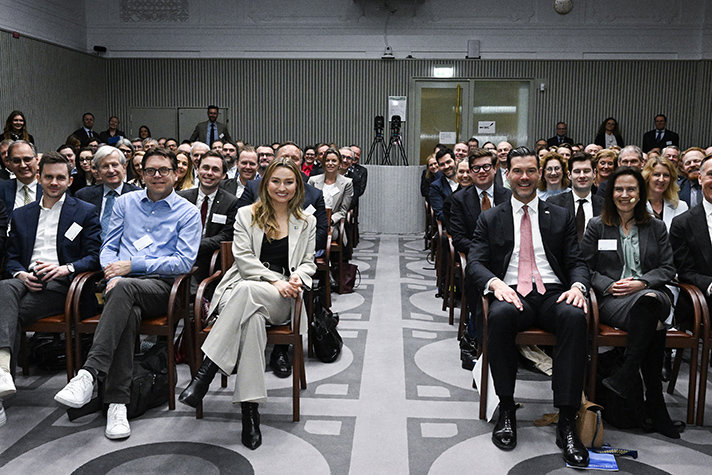
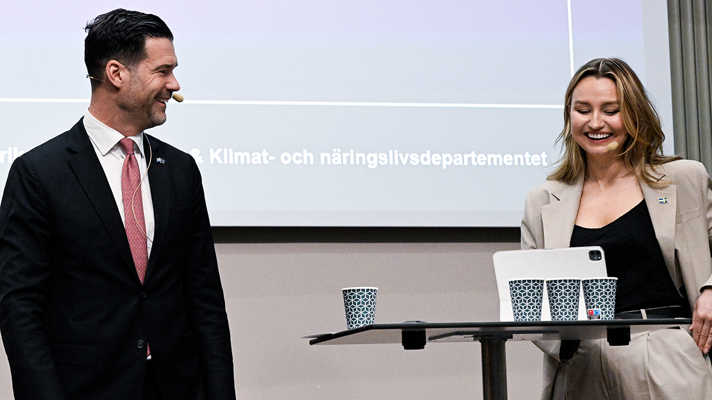
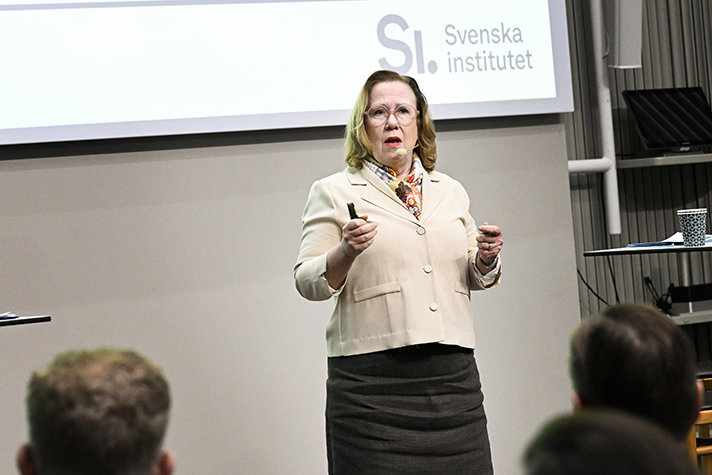
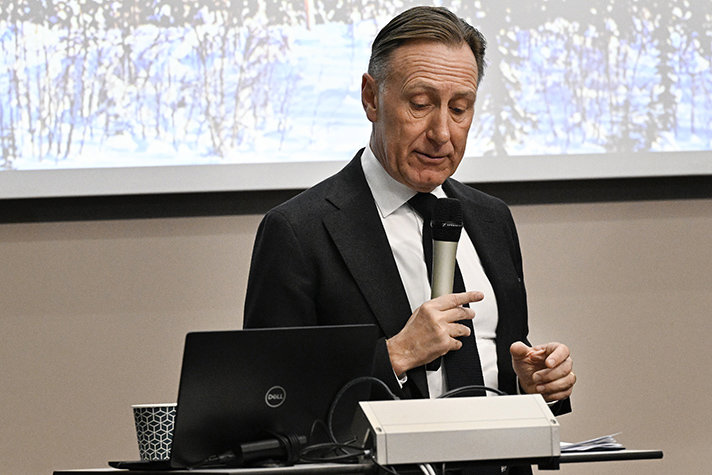
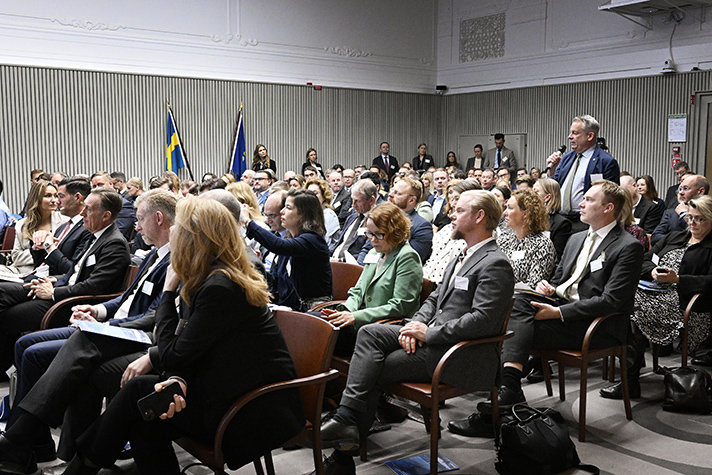
 X
X